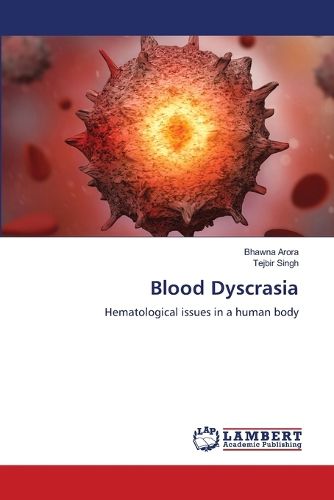Readings Newsletter
Become a Readings Member to make your shopping experience even easier.
Sign in or sign up for free!
You’re not far away from qualifying for FREE standard shipping within Australia
You’ve qualified for FREE standard shipping within Australia
The cart is loading…






This title is printed to order. This book may have been self-published. If so, we cannot guarantee the quality of the content. In the main most books will have gone through the editing process however some may not. We therefore suggest that you be aware of this before ordering this book. If in doubt check either the author or publisher’s details as we are unable to accept any returns unless they are faulty. Please contact us if you have any questions.
Anemia caused by repetitive gastrointestinal bleeding is a relatively frequent, although indirect, hematological adverse effect.Blood dyscrasias, sometimes fatal aplastic anemia, isolated granulocytopenia, and agranulocytosis have been reported . The International Agranulocytosis and Aplastic Anemia study showed that indometacin was significantly associated with agranulocytosis and aplastic anemia.Neutropenia has been reported in a preterm male infant with a patent ductus arteriosus during treatment with indometacin; this could have been coincidence, but his mother had also previously had indometacin-associated neutropenia .Since indometacin is an inhibitor of platelet aggregation, impairment of thrombocyte function is frequent, but thrombocytopenia is rare. Severe clotting defects due to inhibition of platelet aggregation in premature infants have been described. Postoperative bleeding is significantly more frequent in indometacin-treated patients. Indometacin should probably not be used postoperatively in patients at increased risk of bleedingidated". Dyscrasia is a nonspecific term that refers to a disease or disorder, especially of the blood.
$9.00 standard shipping within Australia
FREE standard shipping within Australia for orders over $100.00
Express & International shipping calculated at checkout
This title is printed to order. This book may have been self-published. If so, we cannot guarantee the quality of the content. In the main most books will have gone through the editing process however some may not. We therefore suggest that you be aware of this before ordering this book. If in doubt check either the author or publisher’s details as we are unable to accept any returns unless they are faulty. Please contact us if you have any questions.
Anemia caused by repetitive gastrointestinal bleeding is a relatively frequent, although indirect, hematological adverse effect.Blood dyscrasias, sometimes fatal aplastic anemia, isolated granulocytopenia, and agranulocytosis have been reported . The International Agranulocytosis and Aplastic Anemia study showed that indometacin was significantly associated with agranulocytosis and aplastic anemia.Neutropenia has been reported in a preterm male infant with a patent ductus arteriosus during treatment with indometacin; this could have been coincidence, but his mother had also previously had indometacin-associated neutropenia .Since indometacin is an inhibitor of platelet aggregation, impairment of thrombocyte function is frequent, but thrombocytopenia is rare. Severe clotting defects due to inhibition of platelet aggregation in premature infants have been described. Postoperative bleeding is significantly more frequent in indometacin-treated patients. Indometacin should probably not be used postoperatively in patients at increased risk of bleedingidated". Dyscrasia is a nonspecific term that refers to a disease or disorder, especially of the blood.